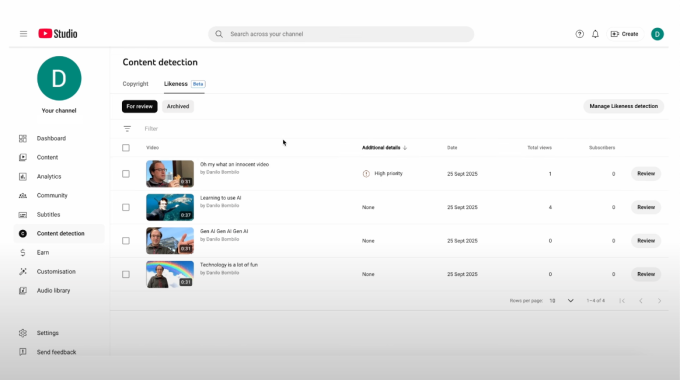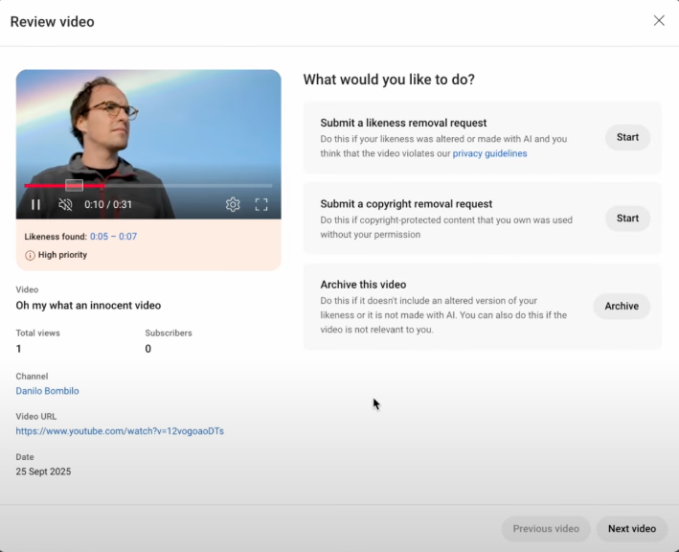YouTube is taking a major step toward protecting creators from AI misuse. The platform announced Tuesday that its new likeness-detection technology has officially rolled out to eligible members of the YouTube Partner Program, following months of pilot testing.
The new tool enables creators to identify and request the removal of AI-generated videos that use their face or voice without consent, marking one of the first large-scale attempts by a major social platform to tackle synthetic identity abuse directly.
According to YouTube, the rollout is starting with select creators, who received onboarding emails earlier today. The company says the feature will expand gradually to all eligible creators in the coming months.
The technology detects and manages AI-generated content featuring a creator’s likeness, whether it’s being used to falsely endorse products or to spread misinformation. Such misuse has become increasingly common: earlier this year, for instance, a company called Elecrow used an AI-generated clone of YouTuber Jeff Geerling’s voice to promote its hardware products without his consent.
By giving creators direct access to these detection tools, YouTube aims to prevent similar incidents from happening and restore a sense of control in the age of generative AI.
How it works
Through YouTube’s Creator Insider channel, the company detailed how creators can activate the new tool. To get started, users head to the new “Likeness” tab, consent to data processing, and then scan a QR code to complete an identity-verification step that includes uploading a photo ID and short selfie video.
Once verified, creators can view all detected videos using their likeness and choose to:
- Submit a removal request under YouTube’s privacy guidelines,
- File a copyright request, or
- Archive the video for record-keeping.
Creators can also opt out entirely, in which case YouTube will stop scanning for videos within 24 hours.
YouTube first partnered with Creative Artists Agency (CAA) in 2024 to test the system with celebrities and top creators. Earlier this year, the platform also voiced support for the proposed NO FAKES Act, which seeks to outlaw AI-generated replicas of real people used for deception or harm. With this new public rollout, YouTube positions itself as a leader among major platforms confronting the ethical challenges of generative AI, balancing innovation with creator protection.
Also Read:
X to Launch Marketplace for Buying Inactive Handles
Instagram’s Updated UI Is Coming Whether You Like It or Not
Facebook AI Can Now Suggest Edits to Photos Still on Your Phone


